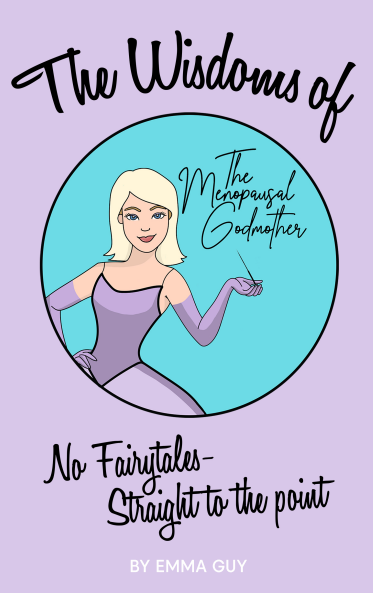So you’ve unleashed an emotional roller coaster over (probably) something quite trivial your partner has done and you know deep down that you’re overreacting but you just can’t help it. Or maybe you feel ‘needy’ and want constant reassurance that you are loved, or perhaps you are thoroughly depressed and just want to be left alone with a bottle of gin. And we haven’t even mentioned problems with your sex life! Welcome to the menopause and its effect on relationships.
How the menopause affects you
As well as all the physical stuff that happens to your body during the menopause – unpredictable periods, weight gain, dry skin, unwanted hair etc – there’s the emotional impact this time in your life can have on you and your relationships.
One of the main concerns for many women is getting others to understand how they are feeling, after all, they often don’t really know the answer to that themselves as emotional moments in the menopause can be very fleeting. One minute you can be angry, impatient, irritable, the next anxious and sad.
Another consequence of the hormonal fluctuations you are going through can be the feeling that you’ve fallen out of love with your partner. We all have a hormone called oxytocin, and it’s called your love hormone. It’s the one your body experiences in a whoosh when you give birth so that you automatically fall in love with your baby. This hormone is sustained by a loving, close relationship with your other half but when oestrogen falls so can the oxytocin levels. That’s when some women start looking at their relationship in a new light with some deciding to call it a day. It’s a fact that divorce is on the increase for those over 50!
And don’t get us started on sex. Women in the 21st century aren’t the same as they used to be, content to be asexual and shoved in the background as they grow older. The over 40s and 50s do not embrace old age in the same way as their grandmothers or mothers once did. On reaching menopause many women still want to feel sexy and desirable but that means fighting all the hormonal changes which send messages telling them otherwise.
If this is you, then you are not alone – approximately 47 percent of women experience sexual difficulties with a decrease of sexual desire being the most common, according to the National Health and Social Survey and the Global Study of Sexual Attitudes and Behaviours.
When you are menopausal you can experience a loss of libido, which is the result of multi-hormonal problems related to oestrogen as well as androgens. This combination of oestrogen deficiency leading to vaginal dryness and reduced clitoral sensitivity, and androgen deficiency, can obliterate sexual satisfaction and cause you to feel that you are no longer sexually attractive. Of course this is bound to impact on your relationship, especially if you have had a strong physical connection prior to the menopause but the good news is, there are treatments and strategies out there that can help.
How the menopause can affect your partner
Menopause can also be a rough time for the person who loves you. Anyone who is not going through the same thing as you are can find it very difficult to get their head around things like fluctuations in mood and physical symptoms such as insomnia and hot flushes.
If night sweats or insomnia have become a problem, then sleeping apart may be an option that some couples take and this presents its own problems. It can mean that a physical distance develops and you can end up feeling isolated, especially if there isn’t any other form of physical intimacy in the relationship.
Also if your partner is male, he probably has no idea how to discuss the menopause and is equally clueless about how he can help.
What you can do to get through this
1. Talk about it
Communication is key to any relationship but now it is more important than ever. Making time to talk to each other about what is happening can really help. Don’t shut out your partner. He may be confused by the changes he sees in you.
2. Stay healthy
Diet and exercise can not only help you to stave off the extra pounds it can also make you feel more positive and help combat depression. Cooking nutritious meals for each other is also a way to signal you care for each other.
3. Join a support group
Online groups such as the Menopausal Godmother are not only a brilliant way to learn about the menopause and how to deal with the symptoms, they are a great way to share your relationship experiences and they can also prevent you from feeling isolated. You can subscribe here.
4. Update your beauty regime
Menopause can make you feel dowdy and irrelevant. You may also start doubting that your partner no longer finds you attractive. We’re not saying you need to book yourself in for a whole load of ‘tweakments’ – there again if you feel you need fillers go for it – but a bit of grooming can help. Having your brows done professionally – they can get thin and straggly during menopause – getting any unwanted hair professionally removed and updating your foundation to suit your menopausal skin are all ways of helping to boost your self-esteem.
5. Seek help
If your libido is low and/or you are suffering from vaginal dryness, discuss your treatment options with a healthcare professional.
6. See a relationship counsellor
If you aren’t happy in your relationship maybe it is time to seek another perspective. It may be that going through menopause has caused some long-standing issues to come to the fore.
7. Stay positive
If you can, try to stay positive. Communicate and support each other’s needs. Try to see it as something you are both going through together. If you need counselling go for it but keep in mind that you love each other. Don’t forget to be romantic. If you accept that relationships go through transitions and you don’t hide your struggles from each other, your relationship can weather the storm and as a result, can emerge stronger and more loving than ever.

Emma is a multi-entrepreneur. She founded The Menopausal Godmother and Acupuncture That Works. She specialises in acupuncture for menopause & fertility and has delivered acupuncture to over 1000 women going through the menopause.








